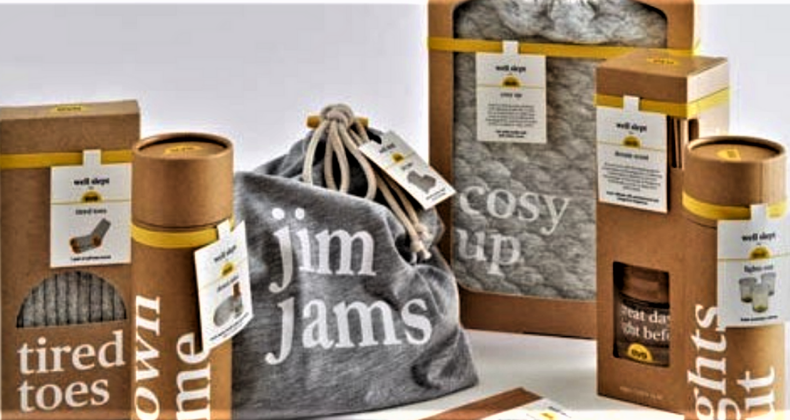DTC Brands Edge Into Licensing

The rapid rise of direct-to-consumer (DTC) brands is well-documented, and they would seem to be well positioned to extend their reach via licensing.
For the most part, it hasn’t happened yet. But there are signs of change:
- UK-based Eve Sleep, which got its start as a mattress brand, has parlayed that into its first licensed wellness products. Boots launched eight SKUs of Well Slept By Eve wellness products (chamomile scented spray, eye masks, bed socks, women’s pajamas and other products) at 446 Boots stores in the UK and Ireland and plans to expand into other related categories, says MDR Brand Management’s Daniel Avener, whose firm represents Eve Sleep.
- In the U.S., Cathay Home Fashions has introduced bedding under a licensing deal with Molecule, a DTC mattress company whose products promise a “cool” sleep by directing heat away from the body. Molecule has promotional agreements with swimmer Michael Phelps, quarterbacks Tom Brady and Russell Wilson, among others.
- Pem-America licensed the Under the Canopy brand, which sells organic cotton sheets, comforters and other products, in a bid to broaden the brand’s distribution. Under the Canopy is represented by agency Earthbound Brands.
U.S. sales of DTC brands are projected to hit $17.75 billion this year, 24.3% higher than in 2019, according to Emarketer. It also forecasts that the number of U.S. consumers who buy DTC goods will rise 10% this year to 87.3 million, so those buyers’ average purchase is also headed up.
Unique model
“The DTC model has the unique ability to communicate, converse, build trust and retain its consumers, and has direct control over that relationship which is extremely important,” says Avener. “Once that brand is established and the company is operating well and has a consumer base, it is up to licensing professionals to find the opportunities and write a strategy around that [to] take the brand from DTC into mainstream retail. That is a great crossover where the connection points all start to come together.”
Many DTC companies have yet to venture into outbound licensing. It’s about more than mere numbers of sales and customers, and gets into a deeper analysis of social media profiles, brand image and extendability into other categories.
“If the brand is not transferrable you can’t take it anywhere other than being as good as it can be within its core category. That is where some of companies are kind of stuck in that process,” says Avener. “From the very beginning Eve, in its communications and marketing, talked about wellness first, rather than a mattress that has 59 springs and memory foam. It has to be a much more positive brand experience.”
Brand owner buy-in
And the companies themselves have to buy in. “A lot of these companies are not ready yet [for licensing] because they are so focused what they need to do to build their [core] business,’ says Joester Loria Group’s Michael Almeida. “So it’s a matter of getting them educated in what licensing is and how it complements, helps reinforce and grow their brand.
“Many of the companies also are worried about control of their brand and giving some control of it to a third party. I understand that, especially for those brands that are at a very fragile place while they are growing.”
Many DTC brands have extended themselves into physical retail. Eyewear brand Warby Parker got its brick-and-mortar start in a half dozen Nordstrom stores in 2015, and now has 123 locations in North America. Footwear brand Allbirds has 21 stores in seven countries, while luggage maker Away has 12 in the U.S. Mattress company away has developed a big physical footprint, with Casper has 16 of its own stores and a presence in more than 2,000 other retail doors (Target, Sam’s, Ashley Home Store and others; in its most recent quarter, 26.5% of its sales ($110 million) came from brick-and-mortar, up from 19% a year earlier.
“We know it’s important to provide customers with a tactile experience to really feel the uniqueness and quality of our product” that isn’t necessarily achieved in marketing online, Allbirds Co-CEO Joey Zwillinger said.




